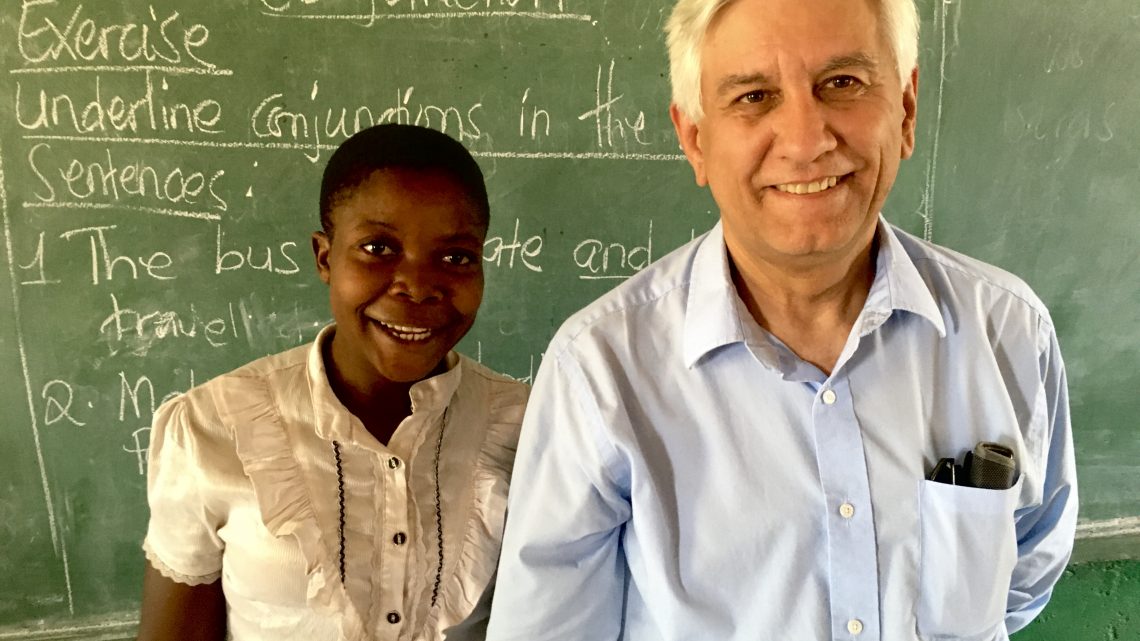A Mid-America Union education leader was part of a North American Division assessment team who recently traveled to Malawi to evaluate the educational needs at ADRA-sponsored schools. The schools are located in one of the poorest areas of one of the least developed nations in Africa. The United States Agency for International Development reports 37 percent of young children in Malawi are chronically malnourished.
“The needs of the educational system in Malawi are significant,” said Gerard Ban, associate director of education for the Mid-America Union. “There is a severe lack of resources, teachers and buildings. The class sizes are very large—in some classes there are over 120 students.
Some students lack necessities like textbooks, paper and pencils, and many classes meet outside under trees with nothing but a small blackboard.”
In addition, Ban pointed out the lack of teacher housing at remote locations that forces teachers to come long distances, generally on bicycles. However, Ban stated that the teachers are well trained to teach proficiently. “Administrators and teachers work together on visioning and goals for the schools, and they work with community leaders and parents. Even though conditions are challenging, teachers and students are excited to be learning and children are happy for the chance to go to school.”
Ban also noted that the best path forward for Malawi is through education, but currently many children don’t complete a basic education. And the situation is particularly tragic for girls. At one of the schools the NAD team visited, almost 70 percent of girls enrolled in first grade were no longer in school by fifth grade and over 90 percent of girls were no longer in school by 8th grade. A Malawian educational administrator explained that “many of our girls get married young, get pregnant, or are forced to work.”
Adam Wamack, who takes groups of volunteers on ADRA service trips around the world, said, “We are delighted that the NAD educators came and we’re looking forward to exploring collaboratively opportunities to work together to help some of the most disadvantaged children on the planet. The NAD educators displayed great professionalism and good will on this trip. We’ve gone to some very difficult places, been up before dawn, out in the midday heat, bounced along the deep ruts of dirt tracks, and been many miles from the nearest flushing toilet. They’ve handled it all. And their interactions with the Malawian teachers and students have been deeply respectful and loving.”
ADRA is currently feeding 50,000 children at 186 schools in five nations across Southern Africa, according to Janelle Walikonis who oversees ADRA’s school feeding initiative. “The feeding programs are important not only because the children need the food, but because food helps keep kids in school and to perform well academically,” stated Walikonis. “We are looking forward to exploring a partnership with the NAD education ministry to improve the quality of education, and thereby further nourish the dreams of the students.”
Photo: Courtesy of James Standish










